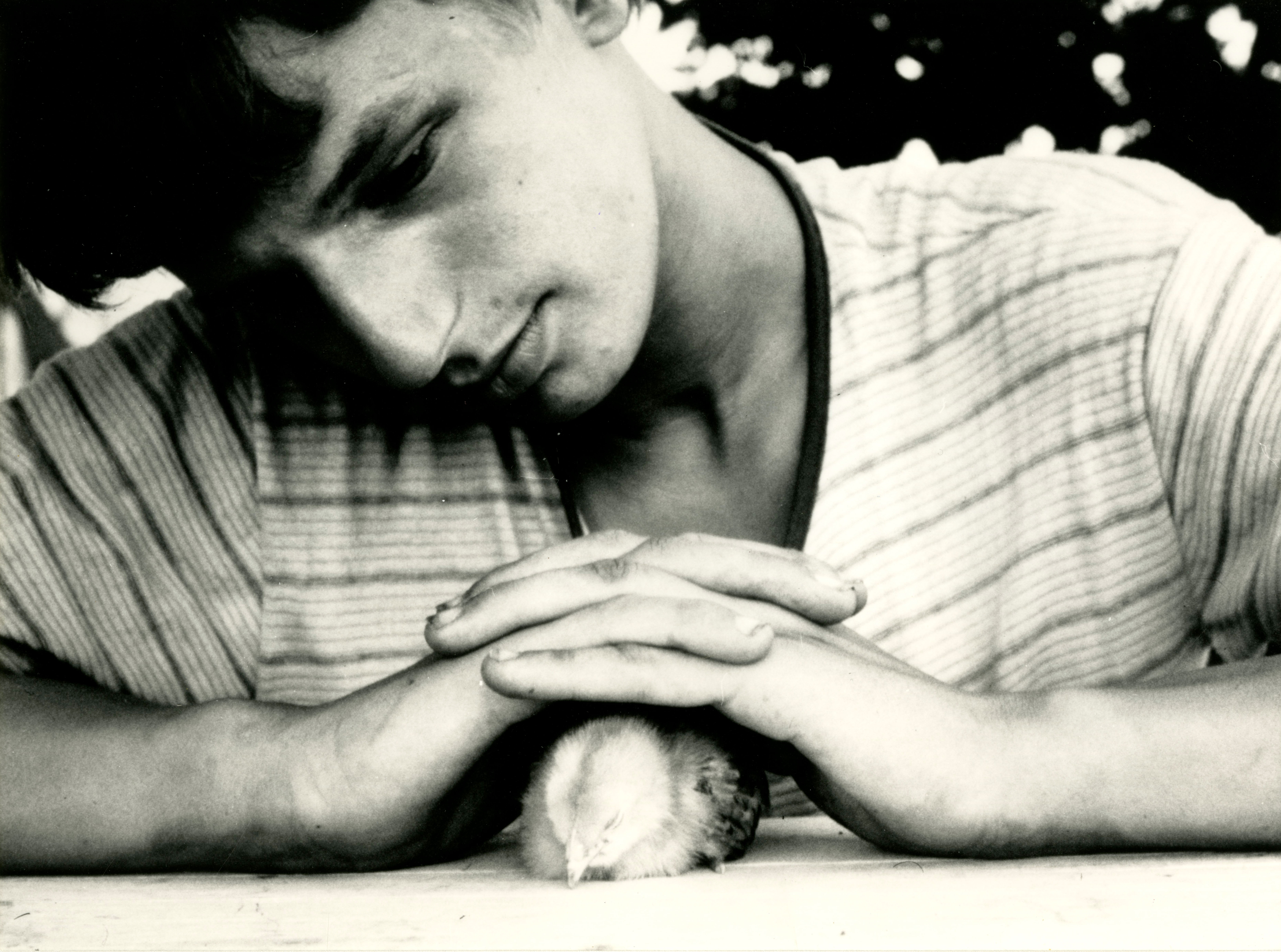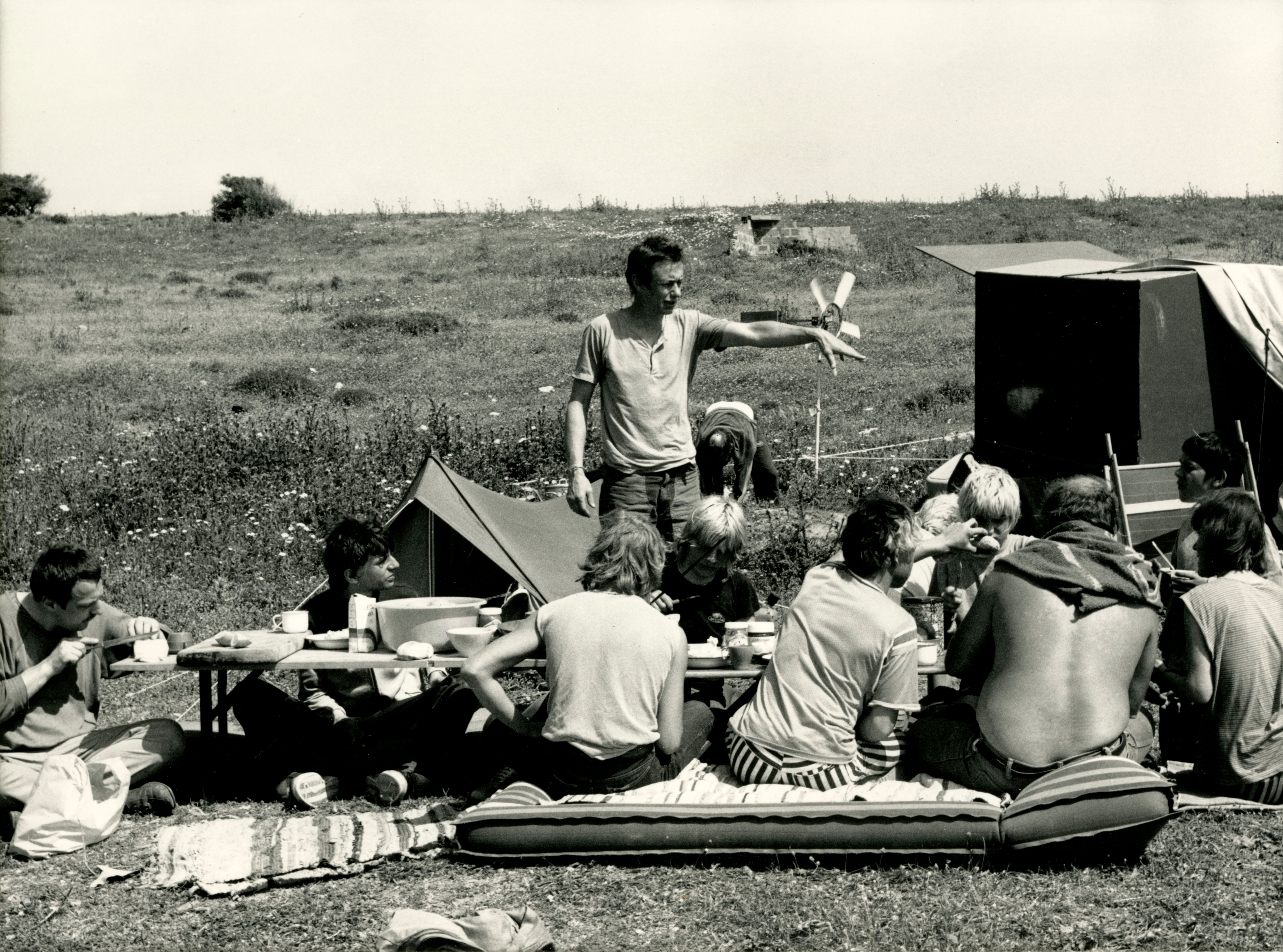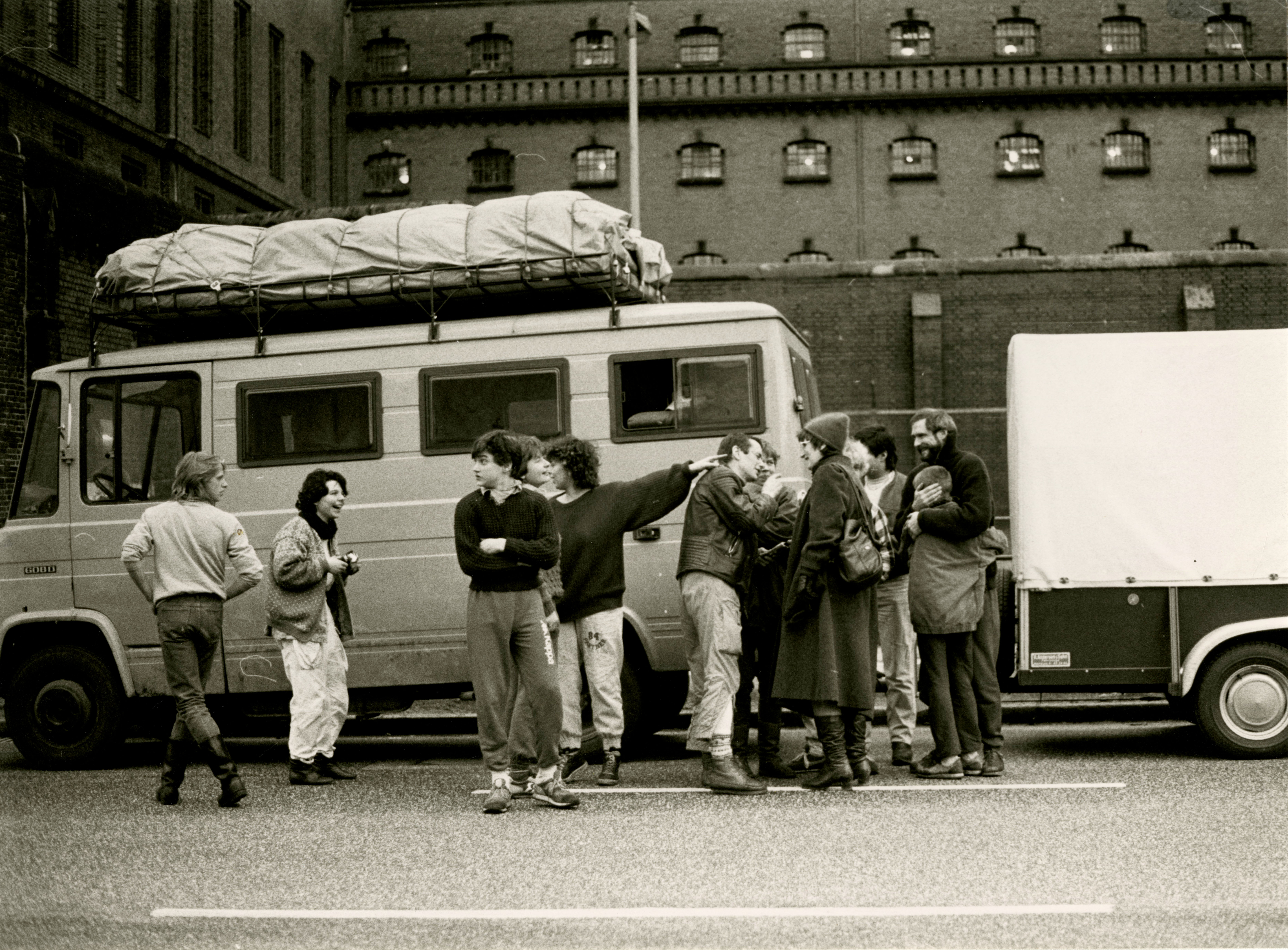HEIMKINDER (2). WARTEN BIS DER LETZTE VON UNS DA IST HEIMKINDER
FRG 1985 | Director, screenplay, camera: Gisela Tuchtenhagen | Contribution: Sabine von Salomon | Sound: Alf Olbrisch | Assistant: Irina Hoppe | Editor: Barbara Schönfeldt | Voice: Eckhard Theophil, Günther Fidorra | Production Manager: Claus Trollmann | Production: Norddeutscher Rundfunk (NDR) | Colour | DCP | 65 min | german OV with english SUB | NDR One Gate
HEIMKINDER (4). MORGEN WIRD WIEDER ALLES GANZ ANDERS SEIN
FRG 1986 | Director, screenplay, camera: Gisela Tuchtenhagen | Contribution: Sabine von Salomon | Photos: Barbara Wiegert | Voice: Eckhard Theophil | Sound: Klaus Rosentreter | Sound mixing: Gerhard Jensen | Editor: Barbara Schönfeldt | Production: Common Film Produktion, Norddeutscher Rundfunk (NDR) | Colour | 16mm | 41 min | german OV with english SUB | Stiftung Deutsche Kinemathek
Originally, Gisela Tuchtenhagen's graduation piece for film school was supposed to be about the locked-down reformatory which she was placed in as an adolescent after being diagnosed as "ineducable", before ultimately breaking out and making her way to Paris, where she lived with street artists and musicians for several years. In the mid-1980s, Tuchtenhagen ended up spending three months following a pilot project of the Johannes Petersen group home in Hamburg-Volksdorf, which took young people who had experienced criminality and violence out of their accustomed surroundings and sent them off on a collective journey while preparing them to fulfil requirements for graduation in a mobile school.
Initially evoking associations with independent television reportage, the film quickly develops into an open self-report in which the children recount their experiences of the journey. Juxtaposed with the verdicts in their files, the futility and cluelessness towards the youths and their future prospects of ever gaining a foothold in society become palpable. "You can either break them or you can try to persuade them" – this sentence, uttered by a social worker, underscores the need for reform in the care home system, a cause which did indeed begin to gather momentum in the wake of this project, among other important catalysts, though not without opposition. The trip was also closely watched by the press, as it was viewed critically as an educational method. The documentary films take a stand against this and demand that society be held accountable. Particularly striking in this regard are the respectful treatment and caring approach to resolving conflict exhibited by the committed social workers, to which this special travel diary attests. (Fiona Berg, Zeughauskino, 2022)



| Acronyms | |
|---|---|
| amer. | American English |
| b/w | Black and white |
| OV | Original version |
| SUB | Subtitles |
| +SUB | electronic live subtitling (below the image) |
| INT | Intertitles |
| Countries | |
|---|---|
| AT | Austria |
| FRG | Federal Republic of Germany (historic) |
| BLR | Belarus |
| DE | Germany |
| CAN | Canada |
| GDR | German Democratic Republic (historic) |
| EGY | Egypt |
| FR | France |
| GB | Great Britain |
| URY | Uruguay |
| BRA | Brasil |
| SWE | Sweden |
| UKR | Ukraine |
| PL | Poland |
| IDN | Indonesia |
| PRT | Portugal |
| HRV | Croatia |
| ECU | Ecuador |
| HUN | Hungary |
| AUS | Australia |
| IT | Italy |
| MEX | Mexico |
| IND | India |






